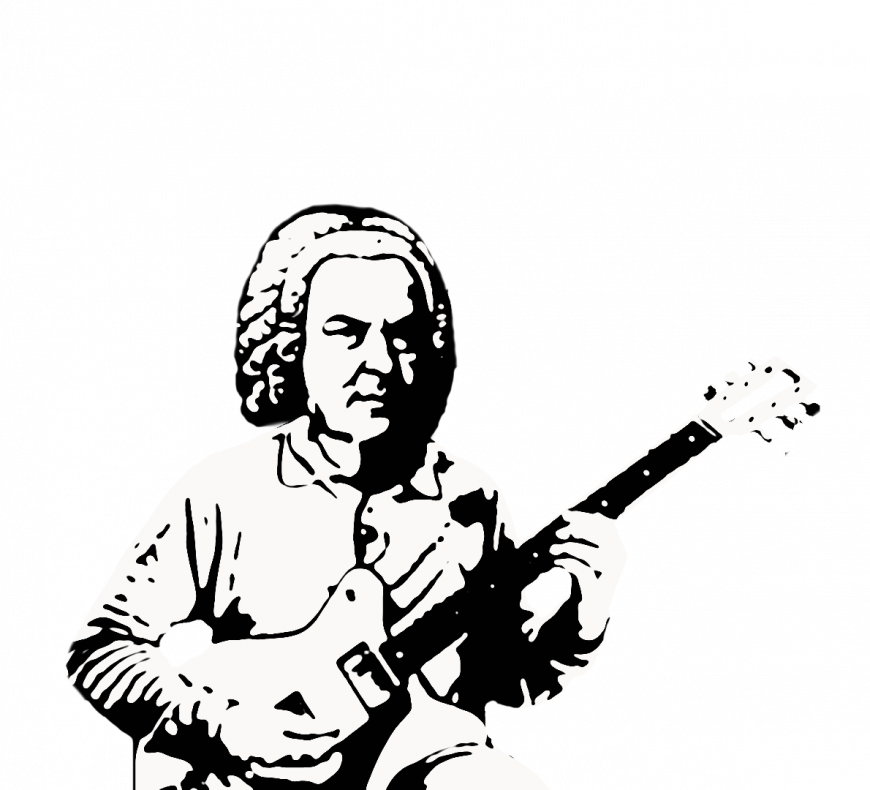Reinventing Teaching Strategies: Combining Old with New Methods

The majority of universities in modern times educate their music students to be classically trained. While this is greatly beneficial to understanding music and creating a solid foundation, it does not focus enough on modern music. By teaching strictly classical, it would sell students short of their full potential and capabilities. Educating students with electronic instruments, modern music theory, and the different aspects of music business is the logical way to ensure musicians are provided with the best education and all the resources necessary to be successful.
To begin with, classical composers were always under constant scrutiny as they were pushing the envelope to develop new sounds and pieces. It is no different today as people are unaccepting to things they are unfamiliar with. Electric instruments were a game changer for the world of music and has made way for many popular music genres to become established. What would the music world be like if Jimi Hendrix only played an acoustic guitar and the Fender Stratocaster and Marshall Amplication never existed? Or if Pink Floyd never had the option to explore synthesizers and create all the space like and dreamy sounds within their albums? And consider the music genre of “Electronica,” the whole foundation of this music is based upon electronic keyboards, synthesizers, drum machines, turntables, and music software. With technology advancing like never before, it has become easier than ever for musicians to create and explore new sounds.
On the same note, classically trained music schools should provide students with opportunities to explore in the electric realm. When students graduate, they enter a digital world dominated by pop music filled with sounds produced from electrified instruments. A student that is only educated in classical forms will find it difficult to transition their education into a modern world. The classical music genre is considered to be a dying market and does not fit into the sounds being generated today. Universities must educate students in music software, production, recording, music business, electric instruments, and exposure to a vast diversity of music in all styles from all parts of the world. The students then will become more focused, more involved and, and more interested all because they are familiar with the music and enjoy playing the styles they listen to and commonly exposed to.
Furthermore, modern music theory is a little different than classical musical theory because some of the standard “rules” that are taught to classically trained musicians are broken. For example, one of the biggest mistakes for a classical composer is to make the use of parallel fifths or octaves. A parallel fifth is simply the root of the chord combined with the fifth note of the scale. Harmonically speaking, this form creates no character within the chord such as major, minor, diminished, or augmented. However, if you listen to any kind of rock music, you are almost guaranteed to hear these parallel movements within the music. The whole genre of rock and roll music is basically built on these parallel fifth movements. However, to our ears, we do not notice anything wrong. By musicians taking a chance and breaking these rules, new music was born.
Some of the most influential music created has been done by breaking the traditional music theory rules. People thought The Beatles were crazy when they recorded “A Day In The Life” because no one had ever recorded a song in such a fashion, it was a different structure in musical form and the public did not understand it because they were unfamiliar with abnormal styles of composition and form. The Beatles established themselves as innovative musicians, and their music will be discussed and listened to till the end of time, the same as Beethoven, Bach, and Mozart. As with all ground breaking music innovators, the public usually does not understand what is going on, it takes a little time to grasp the full complexity of these composers. Eventually, the brilliance of composers will shine and become a staple in music history. The Beatles and Jimi Hendrix are great examples of what can occur if a musician composes outside the box. They chose to break the rules and, in doing so, changed music forever.
By integrating modern forms into classrooms, students will begin to understand how modern theory is different and that is it okay to think outside the box. This sparks creativity and imagination for new music. If every musician follows the same rules and guidelines to compose a musical piece, then music will become bland and uninteresting to the listeners. It is essential that music students are educated in modern music theory as well as traditional theory. The world’s best musicians have deep understanding between both schools of thought and have the ability to apply both methods in compositions. Since its beginning, music has remained in a constant state of evolution to the future which is why music schools should follow suit -- schools should evolve with the music.
As a conclusion, students that are able to find private instructors is a blessing. Private instructors have a way of streamlining the learning process and formulate lesson plans to fulfill the students goals. The student is able to go as fast or as slow as needed, and the instructor will be able to customize any plans as necessary. Modern technology has paved the way for students having the ability to link up with instructors online and complete a lesson without leaving their home. This opens up many new opportunities for learning music which is fascinating for the music world.
While there is much to learn from being classically trained, it is imperative students have a sense of what is available to musicians living in the modern world. If schools are not constantly striving to move forward, how will they expect to produce successful professionals when they graduate? How can we expect students to go above and beyond if the schools are not doing the same? If the students are being left behind in education, then so will the universities. It is a cycle that feeds on each other for success. Up and coming musicians should have all the skills necessary to enter the professional world, and universities need to establish a new standard of music education for successful students. Until then, private music instruction will be ahead of the traditional curve providing students with real world knowledge and how to practically use their skills.
Cole Porter is a profesional guitarist and graduate of Western Kentucky University with an emphasis in classical guitar and jazz under Professor John Martin. He has played guitar for 19 years in a variety of styles ranging from classical, jazz, blues, rock, metal, finger style, and many others. Cole has been a studio session player and gigged regularly since starting.
Cole is a popular guitar teacher on Lessonface, with 29 five-star reviews from his Lessonface students, like this one from Sam, June, 2019:
We covered some vitally important techniques and theory that really needed clarifying in my mind. I feel like the door has opened to potentially rapid improvements in the months to come. Cole is an excellent tutor - I am looking forward to our next lesson and highly recommend him!
Learn more from Cole Porter >>>
Illustration by the Business Company




